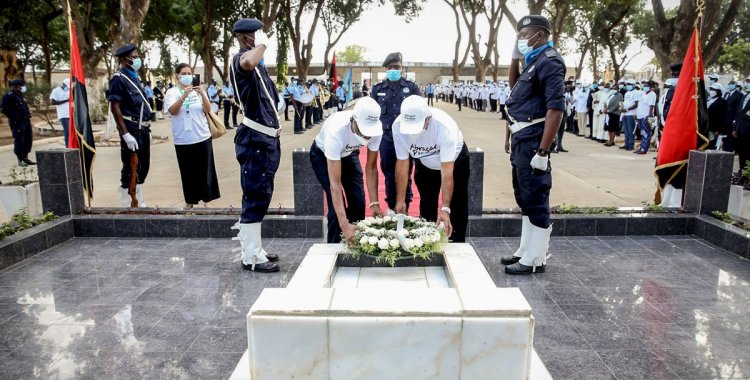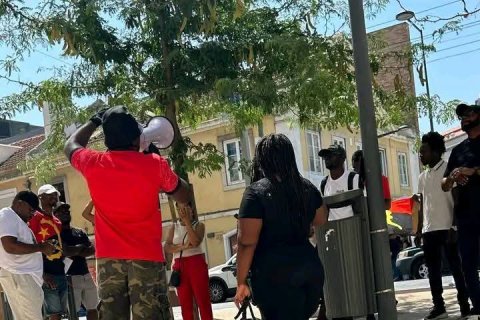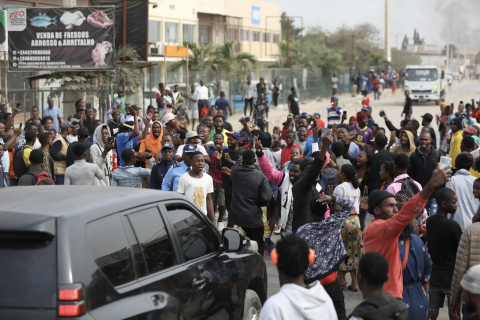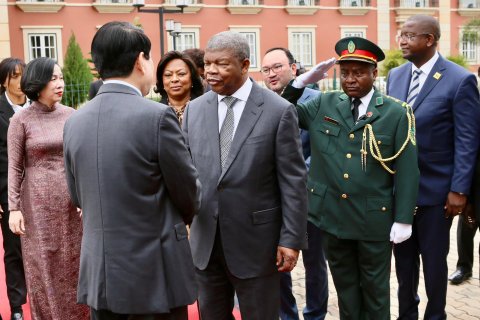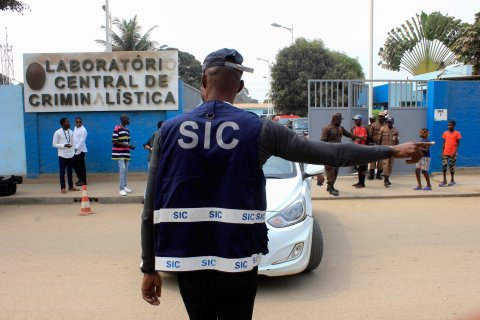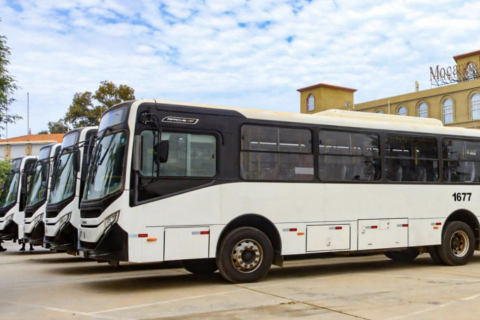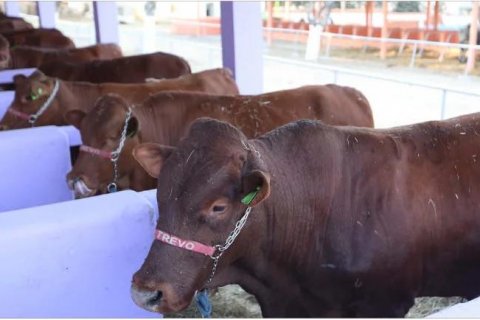The ceremony, on the date that marks 44 years since May 27, 1977, known as an alleged coup attempt, began at the Santa Ana cemetery, where a wreath was laid at the tomb of the unknown soldier and an ecumenical service was held.
Three death certificates were delivered by the coordinator of the Reconciliation Commission in Memory of Victims of Political Conflicts (Civicop), Francisco Queiroz, to the relatives of Inocêncio Leão Leite, Antoninho Armando Simão and Joaquim Manuel Fernando.
The Civicop coordinator and also Minister of Justice and Human Rights considered the day as "a very special moment" in Angola's history, recalling the apology and forgiveness of President João Lourenço by the Angolan State "for the victims who perished in political conflicts in general.
"Those who having survived still suffer the effects of those evils and made a very special mention of the conflict of May 27, 1977," he stressed.
Francisco Queiroz referred that the act of this Thursday is a sequence of the mission outlined by João Lourenço, "with all his humanist spirit, which has been showing in his governance".
The coordinator of Civicop said that the process of delivery of death certificates will continue and a program will be defined for the systematic attribution to the families of the victims that perished in the 27 of May and in all the political conflicts since the independence until the peace day.
"Based on these guidelines we will also strengthen the work of Civicop, which in these two years has consisted of bringing together disagreeing parties, opinions, truths that each one presented about the problems that occurred during the political conflict," Francisco Queiroz continued.
The act was attended by survivors and orphans of this period, Angolan government officials, religious entities, and civil society.
Of the cemetery to the Square of Independence a crown of flowers was equally deposited in the statue of the first President of Angola, António Agostinho Neto, for the president of the Foundation 27 of May, Silva Mateus, and an ex-FAPLA (Popular Armed Forces of Liberation of Angola) for the governmental part, Alexandre Bastos "brigadeiro Sacha".
According to the coordinator of the commission, "a moment of peace of spirit was reached, of consensus, among all, an environment of tranquility, peace, reconciliation, embracing and forgiveness was achieved.
Francisco Queiroz stressed that the work will now continue in a more concrete dimension, fulfilling the President's guidelines, with the location of the bodies of those who died in order to proceed with the delivery to the families, according to the list presented publicly and another to be elaborated and enriched, so that the largest possible number of people can be contemplated.
"I would like to appeal to all the members of this commission and the political parties that have always worked with us, the churches, the civil society organizations, and all the Angolan men and women to continue united in this fight, because, in truth, we need to build a new type of relationship," said Queiroz.
The responsible pointed out that the homage to the victims of the 27 of May does not aim to forget the date, but "to remember and to manifest the commitment with the purpose of never happening again any 27 of May in the country.
The president of the 27 of May Foundation, Silva Mateus, who is part of Civicop, said that in recognition of the errors committed by the State, the parties that disagreed, in a gesture of brotherhood and forgiveness, were present in a joint act to honor the dead.
"Thus beginning a new cycle of understanding of forgiveness and reconciliation, however, the national reconciliation that is intended is a serious act, which presupposes the breaking down of barriers that still exist, to have mutual trust between the parties involved and consultative spirit, to forgive and embrace the brother, but never, ever, to forget the past and with the sincere desire not to commit it again," he stressed.
Already the "Brigadier Sacha" said that May 27, 1977 was an episode that affected the Angolan people and deeply stained the history of Angola, recognizing that "there were excesses" on that date and the importance of today's event.
Speaking to Lusa news agency, Sebastião Amaral, survivor of the 27 of May, considered welcome the apology presented Wednesday by President João Lourenço, to put an end to existing grievances.
"We will not forget the 27 of May, but we will forgive, because we are the offended ones," said Sebastião Amaral, at the time of the events a member of the FAPA/DAA [People's Air Force of Angola/Air and Air Defense] staff and head of the command post, who was imprisoned for three years, being one of the last to leave São Nicolau jail, and who lost several friends in the conflict.
For her part, Bibiana Leão, one of the three people contemplated this Thursday in the delivery of death certificates, expressed "joy" with the gesture of the Government, recalling that her brother, police officer and chief of escort in the province of Bengo, disappeared in 2001.
Moisés Sotto-Mayor, coordinator of the commission of the 27 of May orphans, family of Alberto Francisco Sotto-Mayor and Avela Francisco Sotto-Mayor, both victims of that process, considered the pronouncement of João Lourenço an act of tolerance for all that happened and could come to happen if these issues were not resolved in time.
"Many people lived with repressions and these repressions, many not directly linked to the 27 of May, hurt and frustrated people out of desperation of seeing their relatives and loved ones missing without any word of comfort from the State," he noted, considering that the request for forgiveness "consoled many families and gave courage, mobilizing more people for national harmony."
On May 27, 1977, an alleged coup attempt, in an operation apparently led by Nito Alves - then former Minister of Interior since independence (November 11, 1975) until October 1976 - was violently repressed by the Agostinho Neto regime.
Six days earlier, on May 21, the MPLA had expelled Nito Alves from the party, which led the former minister and several supporters to invade the Luanda prison to free other sympathizers, taking control of the national radio station at the same time, becoming known as "fractionists".
The troops loyal to Agostinho Neto, with support from Cuban military, eventually established order and arrested the insurgents, followed, then what was known as "purge", with the elimination of factions, having been killed about 30,000 people, mostly without any connection to Nito Alves, as stated by Amnesty International in several reports.
In April 2019, the President ordered the creation of a commission (the Civicop), to draw up a general plan to honor the victims of the political conflicts that occurred in Angola between November 11, 1975 and April 4, 2002 (end of the civil war).

